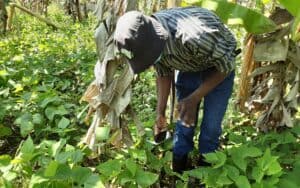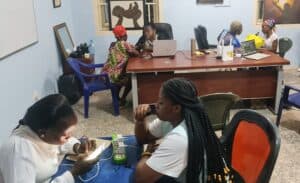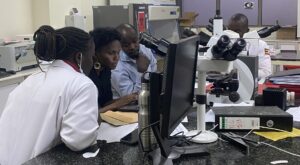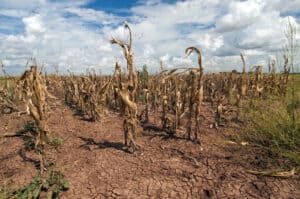
The Need
Machine learning has shown great potential to revolutionize everything from how farmers increase their crop yields, to how governments communicate with their citizens during natural disasters, to how healthcare providers respond to global pandemics.
But in low- and middle-income contexts globally, a lack of labeled and unbiased data puts the benefits of machine learning out of reach.
In many cases, data required to build AI applications for real-world problems doesn’t exist. And where it does exist, it’s often outdated, missing key information, or not representative of underserved populations, leading to bias and decreased accuracy.
Machine learning tools then “learn” these biases, which can lead to harmful outcomes for people of color, women, and other marginalized populations.
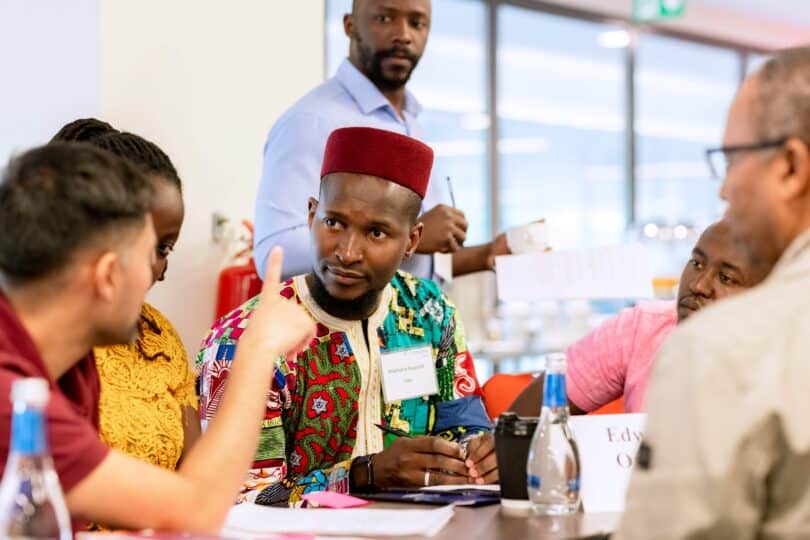
The World’s First Collaborative Effort to Fund Labeled Data for Social Impact
Lacuna Fund will provide data scientists, researchers, and social entrepreneurs in low- and middle-income contexts globally with the resources they need to either produce new datasets to address an underserved population or problem, augment existing datasets to be more representative, or update old datasets to be more sustainable.
Guided by machine learning professionals worldwide, Lacuna Fund is designed for and by the communities it will serve.
All datasets produced will be locally developed and owned, and they will be openly accessible to the international community while adhering to best practices regarding ethics and privacy.
Filling in the International Data Map
Worldwide, there are data gaps that lead to less robust and potentially harmful machine learning outcomes. Lacuna Fund is working to fill these gaps in several domains.
Our Grantmaking
The Steering Committee has chosen to focus Lacuna Fund’s grantmaking to support the creation, expansion, and maintenance of labeled datasets in three domain areas with key needs: agriculture, health, language, and climate.
We accept applications from non-profit entities, research institutions, for-profit social enterprises, or teams of such organizations through our requests for proposals (RFPs). Organizations seeking to apply should have the technical capacity to conduct dataset labeling, creation, expansion, and/or maintenance.
One requirement of applicants is that the datasets are locally developed and owned. We believe that local researchers need to create this data and see it through to implementation because that’s where the greatest potential for systemic change lies.
Governance
Lacuna Fund began as a funder collaborative, but it has since evolved into a multi-stakeholder engagement composed of technical experts, thought leaders, local beneficiaries, and end users.
Galvanizing a step change in machine learning’s potential worldwide.
Lacuna Fund aims to:
- Disburse funds to institutions to create, expand, and/or maintain datasets that fill gaps and reduce bias in training data used for machine learning.
- Make it possible for underserved populations to take advantage of advances offered by AI.
- Deepen understanding by the machine learning and philanthropy communities of how to most effectively and efficiently fund development and maintenance of equitably labeled datasets.
While Lacuna Fund’s objective is to produce more equitable open source datasets, this is bigger than just data collection and labeling. We are working towards data collection protocols that ensure the data is scalable and replicable.
We endeavor to see these protocols applied to other regions and sectors in the future, thereby catalyzing sustainable funding for this essential work.
By helping build the capacity of local organizations to be data collectors, curators, and owners, our goal is to empower these changemakers with the data resources they need to uncover new insights and solutions, embrace innovative solutions, and ultimately fuel systemic change within their communities.

